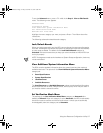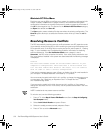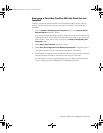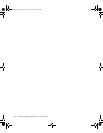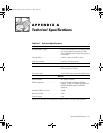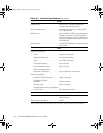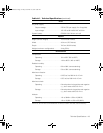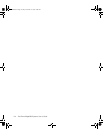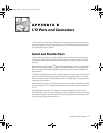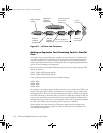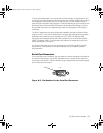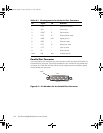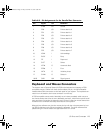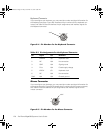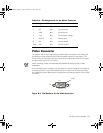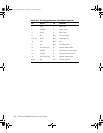
I/O Ports and ConnectorsB-1
$33(1',;%
,23RUWVDQG&RQQHFWRUV
The input/output (I/O) ports and connectors on the back panel of the system are the
gateways through which the computer system communicates with external devices,
such as a keyboard, mouse, printer, and monitor. Figure B-1 identifies the I/O ports
and connectors for your system.
6HULDODQG3DUDOOHO3RUWV
The two built-in serial ports use 9-pin D-subminiature connectors on the back panel.
These ports support devices such as external modems, printers, plotters, and mice
that require serial data transmission (the transmission of data one bit at a time over
one line).
Most software uses the term
COM
(for communications) plus a number to designate a
serial port (for example, COM1 or COM2). The default designations of your systems
built-in serial ports are COM1 and COM2. COM1 is the right connector; COM2 is the
left connector.
The built-in parallel port uses a 25-pin D-subminiature connector on the systems back
panel. This I/O port sends data in parallel format (where eight data bits, or one byte,
are sent simultaneously over eight separate lines in a single cable). The parallel port is
used primarily for printers.
Most software uses the term
LPT
(for line printer)
plus a number to designate a parallel
port (for example, LPT1). The default designation of the systems built-in parallel port
is LPT1.
Port designations are used, for example, in software installation procedures that
include a step in which you identify the port to which a printer is attached, thus telling
the software where to send its output. (An incorrect designation prevents the printer
from printing or causes scrambled print.)
3502Ebk0.book Page 1 Friday, November 13, 1998 10:00 AM



